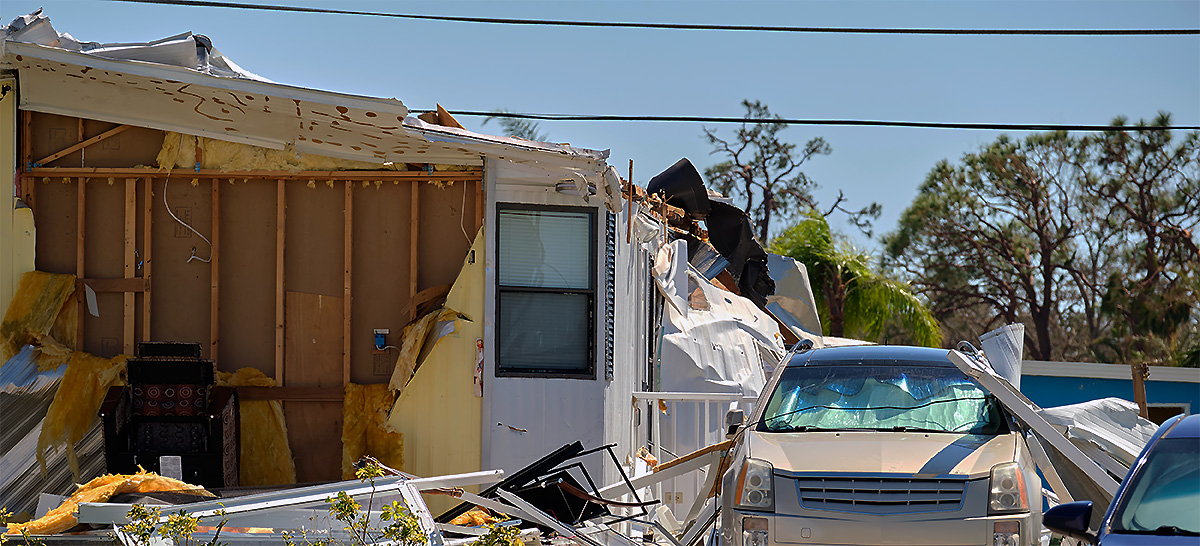
If you made a Hurricane Ian claim, you have until March 26, 2023 to notify your insurance company that you are seeking payment for your damages at the replacement cost value (RCV). Not filing this letter may mean less money for your repairs and damaged property. This means you could lose money your insurance company already included in your claim.
When there is a failure to notify your insurance company of your intent to seek the RCV (replacement cost value) of your damages within 180 days, it may allow your insurance company to pay the ACV (actual cash value) of your damages. The 180-day notification clause allows them to avoid payment even though you purchased and paid for RCV coverage.

For starters, it is important to understand the difference between RCV and ACV.
RCV (replacement cost value) is defined as the amount of money needed to repair your home at today’s prices of building supplies; or replace your belongings at today’s cost of the similar or like item.
The definition of actual cash value (ACV), sometimes referred to as the “sound value,” or “‘fair market value”, In Trinidad v. Fla. Peninsula Inc. Co., the Supreme Court of Florida held that the “actual cash value is generally defined as replacement cost minus normal depreciation. The court defined depreciation in this context as the “decline in an asset’s value because of use, wear, obsolescence, or age. Put into simpler terms, the ACV (actual cost value) is the RCV (replacement cost value) with the decline in value due to age factored into the price.
 Generally, in Florida, an insurance company is allowed to only pay the actual cash value (ACV), instead of the replacement cost value (RCV), of the loss, even if the policy provides for replacement cost.
Generally, in Florida, an insurance company is allowed to only pay the actual cash value (ACV), instead of the replacement cost value (RCV), of the loss, even if the policy provides for replacement cost.
Some policies require the insured to repair or at least inform the insurance company of the intent to repair to collect the RCV. This is the reason it’s important for an insured to notify the insurance company of the intent to seek the RCV of the damages caused within 180 days of the date of loss.
An example of a policy with these conditions:
SECTION I – CONDITIONS
- Loss Settlement
- You may disregard the replacement cost loss settlement provisions and make claim under this policy for loss to buildings on an actual cash value basis. You may then make claim for any additional liability according to the provisions of this Condition D. Loss Settlement, provided you notify us, within 180 days after the date of loss, of your intent to repair or replace the damaged building.
(2) You may make a claim for loss on an actual cash value basis and then make claim for any additional liability in accordance with this endorsement provided you notify us of your intent to do so within 180 days after the date of loss.
The policy language doesn’t require you to make the actual repairs or replacements in the 180 days after your loss, however there is language that requires you to give notice to your insurance company that you intend to seek the replacement costs, or they may only pay on the ACV (actual cash value)
 If you have a public adjuster helping you with your claim, they should be writing and sending this letter for you, however it would be good to check in with them to make sure this is the case. If you are working on your own claim, you can give the insurance company your notice of intent and write a letter of advisement as follows:
If you have a public adjuster helping you with your claim, they should be writing and sending this letter for you, however it would be good to check in with them to make sure this is the case. If you are working on your own claim, you can give the insurance company your notice of intent and write a letter of advisement as follows:
Your Name, Address, Phone Number and Email Address.
Name and Address of Insurance Company.
Your Claim Number and Policy Number.
I/We are hereby notifying you that I/We is/are seeking the full replacement cost value of the loss in accordance with the insurance policy as to all applicable coverages, dwelling, other structures, personal property, content, loss of use, additional living expenses, ordinance, or law and/or matching related replacement for purposes of repair to place our property in its pre-loss condition. This notice is provided within 180 days from the loss on 9/28/2022.
Your Signature
Not every carrier in Florida enforces the 180-day notification requirement but you don’t want to get caught on the wrong side of one that does.